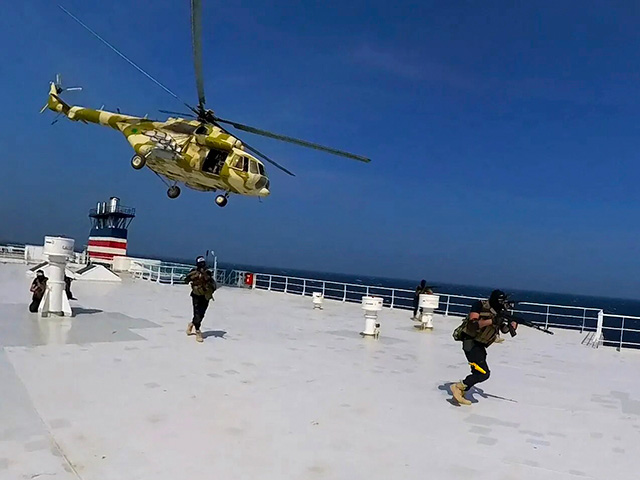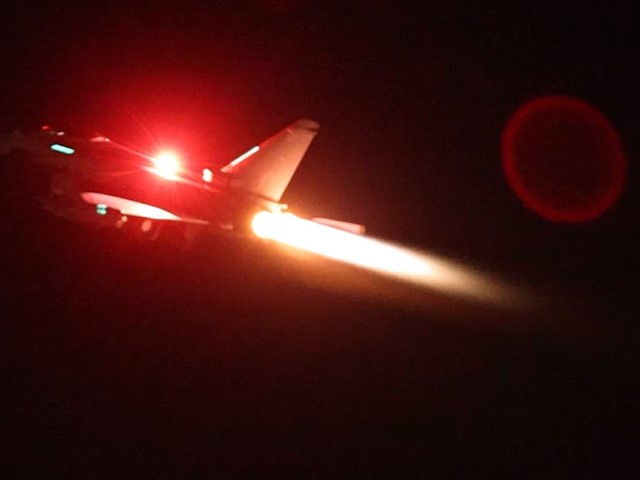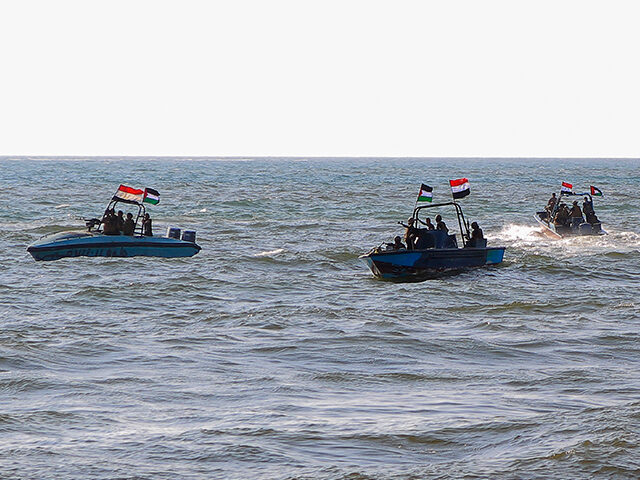The Iran-backed Houthi terrorists of Yemen wrote a menacing post on the Telegram messaging platform in December that suggested they might try cutting undersea cables carrying Internet traffic from around the world.
Telecom corporations affiliated with the legitimate government of Yemen warned on Monday that the Houthis are capable of such sabotage because global firms unwisely did business with them and showed them how the undersea cable system works.
The alarming Houthi post on Telegram included a map of telecommunication cables running along the bottom of the Red Sea, along with an ominous message, which read, “There are maps of international cables connecting all regions of the world through the sea. It seems that Yemen is in a strategic location, as internet lines that connect entire continents – not only countries – pass near it.”
The Houthis have been launching terrorist attacks against Red Sea shipping to support the Hamas terrorists in Gaza, shutting down one of the world’s most important sea lanes. Sabotaging the world’s Internet traffic seems like something they might consider doing if they can overcome the logistical hurdles.
According to Yemeni telecom corporations, up to 16 major undersea submarine cables run through the Red Sea towards Egypt and the Suez Canal. One of them links Southeast Asia to Europe. In total, the cables handle about 17 percent of the world’s Internet traffic, which is, coincidentally, close to the percentage of world shipping that passed through the Red Sea before the Houthis began attacking ships with missiles, drones, and hijackers.

Houthi forces board the cargo ship Galaxy Leader in the Red Sea on November 19, 2023. (Houthi Media Center via AP)
Yemen’s telecom industry complained on Monday that too many foreign firms have been willing to do business with the Houthis — who control the capital city of Sana’a, about a third of Yemen’s land area, and the majority of its population after more than a decade of civil war. Commercial contacts with the Houthis allegedly gave them an idea of where the vital Internet cables are located.
The UK Guardian on Monday quoted security analysts who said the Houthis are indeed interested in cutting at least some of the undersea Internet cables, but their “relative technological underdevelopment” means they lack the submersible technology necessary to do so.
On the other hand, some of those undersea cables run across shallow seabeds that competent divers could reach without cutting-edge gear, and the Houthis are looking for a way to escalate their sabotage campaign after punitive U.S. and British strikes against their anti-ship missile and drone sites. Most of the undersea cables are located near the Western coast of Yemen, which is firmly under Houthi control.

In this handout image provided by the UK Ministry of Defence, a Royal Air Force (RAF) Typhoon aircraft takes off from RAF Akrotiri to join the U.S.-led coalition to conduct air strikes against Yemen’s Houthi rebels on January 11, 2024, in Akrotiri, Cyprus. (MoD Crown Copyright via Getty Images)
Defense Analyst Wilson Jones of GlobalData told Airforce Technology on Monday:
It would be very difficult to stop the Houthis if they made a determined effort to target these cables. A cut on a cable anywhere disrupts the flow of data everywhere. As these cables are essential for the modern internet and digital financial transactions, the disruption could be huge.
“The Houthis certainly don’t have submarines, but they could use some kind of depth charge, explosive or remote-controlled underwater mine, or send someone in scuba gear with wire cutters,” he said.
Jones added that since the Houthis have demonstrated proficiency with unmanned aerial vehicles (UAVs) in their attacks on shipping, it would not be implausible for them to obtain undersea drones and learn to use them well enough to attack the Internet cables.
Other analysts pointed out that if the Houthis do manage to damage some of the undersea cables, repairing them would be a difficult and time-consuming task. It could take weeks for suitable cable ships to reach the Red Sea, and they would be highly vulnerable to Houthi attacks while conducting repairs.
Russia also recently threatened to cut undersea Internet cables in revenge for the operation that damaged the Nord Stream 2 pipeline in September 2022.

COMMENTS
Please let us know if you're having issues with commenting.